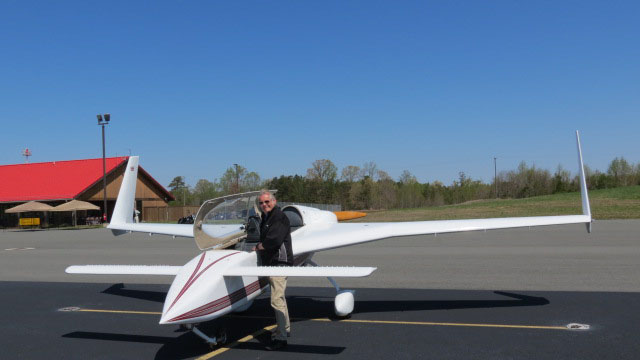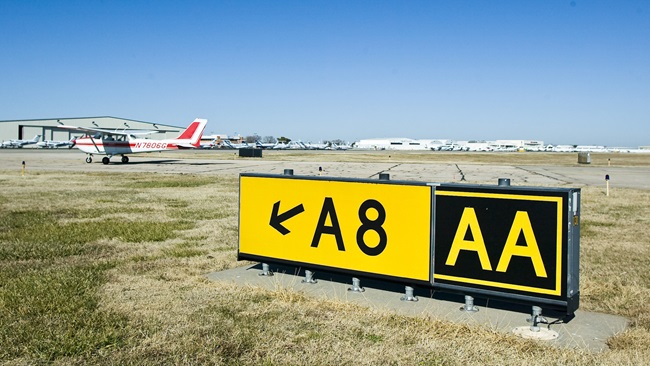‘A more empathetic system’
CFIs welcome inclusion in BasicMed
Elation hasn’t been too strong a word to describe the reaction of many general aviation pilots to the FAA’s Jan. 10 announcement of the new rule known as BasicMed that creates a path for many pilots to fly without a medical certificate.
When the rule’s fine print became available for examination, some certificated flight instructors expressed surprise along with their elation upon learning that CFIs could continue serving their fellow pilots—and student pilots—without a medical certificate provided they meet the same qualifications as any other pilot choosing to forego an FAA medical exam and comply with the BasicMed provisions instead.
“We have an awful lot of older CFIs who may see this as beneficial. All the younger ones are joining the flight academies and university programs, leaving we old guys as all that's left to the non-career pilot community,” he said in an email.
Under BasicMed, an eligible pilot may fly an aircraft weighing up to 6,000 pounds with up to six occupants, day or night, IFR or VFR to 18,000 feet msl, not for compensation or hire, within the United States unless authorized by the country in which the flight is conducted.
Before flying under BasicMed, the pilot must get a physical exam by a state-licensed physician, have the associated checklist completed, and then complete an online aeromedical course. It is important that pilots take the steps in that order because the exam information will need to be transmitted upon successful completion of the aeromedical course. AOPA is urging pilots to review the regulation and the advisory circular that were released to get an overview of the privileges and limitations of BasicMed.
Under the rule, pilots who have held a valid medical certificate any time in the decade prior to July 15, 2016, may not need to take another FAA medical exam. The 10-year lookback period applies to both regular and special issuance medicals.
In the final rule, the FAA explained that pilots whose medicals have expired should check the expiration of their most recent medical certificate to determine if they fall within the lookback period. The lookback applies to the expiration date of the medical certificate, which is determined using the “Date of Examination” on the certificate and the duration periods listed in 14 CFR 61.23(d). For those who had a regular medical certificate, the expiration date depends on their age—age 40 or over, or under 40—at the time of the exam. (Expiration dates are listed on special issuance certificates.)
“Persons age 40 or over on the date of their examination would meet the 10-year period described” in the Federal Aviation Administration Extension, Safety, and Security Act of 2016 (FESSA) “if their examination was on or after July 15, 2004. This date is based on the two-year validity period for third class medical certificates issued to persons age 40 or over. Persons under age 40 on the date of their examination would meet the 10-year period described in FESSA if their examination was on or after July 15, 2003. This date is based on the three-year validity period for third class medical certificates issued to persons under 40 years of age that was in effect prior to 2008,” the rule states.
Pilots whose most recent medical certificate was revoked, suspended, or withdrawn or whose most recent application for a medical certificate was denied will need to obtain a new medical certificate (regular or special issuance) before they can operate under the reforms. Individuals who have never held an FAA issued medical certificate, such as new student pilots, will need to obtain an FAA issued medical certificate (regular or special issuance) one time only.
In a phone interview, Harvey said he delivered the news about BasicMed to two other instructors.
“They both expressed great satisfaction,” he said. “They had thought the CFIs would be kept in the old regulations because of the revenue side of it.”
AOPA explained in a Jan. 12 article that under BasicMed, “the FAA considers the flight instructor who is acting as PIC to be “receiving compensation for his or her flight instruction” under instructor privileges but is “exercising private pilot privileges while acting as PIC of the flight.”
Harvey, who has been a CFI for 30 years, has flown aerobatics, and owned a succession of single-engine and twin-engine aircraft, noted that some older pilots become “really worried about the next medical,” even if they have no known medical deficiency.
“They can’t wait to take advantage of what appears to be a more empathetic system. They can talk to the doctor. The other one is a pass fail-kind of thing,” he said.
Other instructors weighed in with similarly enthusiastic comments.
“Very exciting announcement today regarding BasicMed. I am currently flying as a part time CFI with a Third Class Special Issuance medical certificate,” wrote a flight instructor in Wisconsin who was eager to check out the details, and whose message reflected the overall tone of pilots’ reactions.
Like other pilots, Harvey was waiting to see how positively state-licensed physicians unfamiliar with aviation would respond to requests to review a pilot’s self-assessment checklist, perform the required examination, and affirm a satisfactory result. The checklist has yet to be released by the FAA. (AOPA developed a resource page specifically for state-licensed physicians.)
Educating the physicians will be key to BasicMed’s success, he said, and for many pilots who have experienced frustrating “delays in paperwork and questions re-asked” when obtaining their medicals, a favorable outcome holds serious appeal.
“On balance, looking at guys who are intimidated following the current system, I can see it’s taken a weight off their shoulders,” he said.




